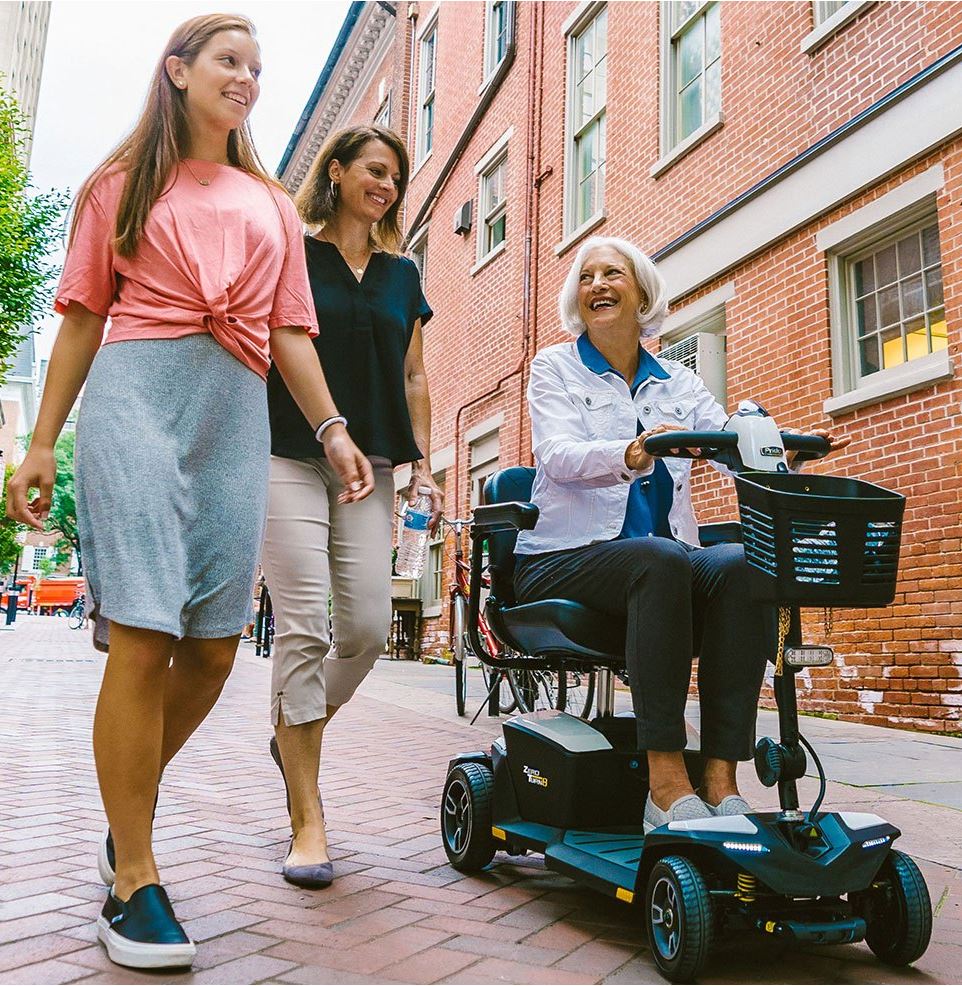
Sunny, spring days have arrived here in Florida. That means extra daylight hours to enjoy the beautiful Florida sunshine.
Maybe you’ve started to notice some challenges getting around and the question “will Medicare pay for a mobility scooter?” has entered your mind.
Deciding to get help with mobility and understanding the process of funding a scooter can be complicated. Fortunately, there is a well-documented set of steps to get you the help you need.
What does Medicare cover?
Medicare is a federally funded program that provides health insurance to people age 65 and over. Medicare also covers certain individuals with disabilities. Medicare covers traditional medical treatments and some equipment. One such equipment category is Durable Medical Equipment, or DME, which includes mobility devices like power wheelchairs and mobility scooters.
Medicare coverage comes with some requirements. To be eligible for Medicare coverage, DME must be designated for use primarily at home. A site visit might be needed to ensure your home can accommodate a scooter.
Medicare will also only cover mobility devices that are deemed medically necessary. Your physician is responsible for assessing your needs and writing a prescription.
Will Medicare Pay for a Mobility Scooter?
Medicare will pay for up to 80% of a mobility scooter if it is deemed medically necessary. A face-to-face visit with a doctor to assess your needs, and a written prescription are part of this determination.
Requirements for Mobility Scooter Coverage
It’s helpful to look at Medicare’s mobility options as a set of stairs. If the mobility aids on one step aren’t sufficient, you move to the next. The first step is manual mobility aids like walkers and hand-operated wheelchairs. The baseline requirements include:
- The patient is unable to complete daily tasks such as using the bathroom and moving around the kitchen.
- The mobility limitation is not resolved with use of a walker or cane.
- The patient doesn’t have the requisite arm and hand strength to operate a manual wheelchair.
If a person is unable to thrive with manual aids, they could be eligible to move to the next step of using a mobility scooter. To be considered for coverage of a mobility scooter, you need to meet the following requirements.
- The patient can safely transfer to and from the scooter.
- The user can operate the tiller steering system.
- The patient can stay safely seated while operating the scooter at home.
- They have the mental and physical ability to operate the device.
- Their home has adequate space to use the mobility scooter.
- Using a scooter will significantly improve the patient’s ability to complete everyday tasks.
- The patient is willing to use the mobility scooter at home.
If a mobility scooter is not the right option, then the top step is a power wheelchair.
Steps to get Medicare Coverage for a Mobility Scooter
- Contact your doctor to discuss mobility aid options and make an appointment.
- Prepare a list of real examples that show exactly what ways a mobility scooter will help you achieve a typical lifestyle.
- Have a face-to-face consultation with your physician about mobility options. Medicare accepts in-person and virtual appointments. Your doctor will use the parameters above to determine your medical need.
- Your doctor will write a Standard Written Order or prescription. This document includes the patient’s name, the date of the order, and the doctor’s name and signature
- Your physician will submit the Standard Written Order and all supporting documents to the supplier, who will forward to Medicare for prior authorization.
- If everything is received and accepted, your mobility scooter should be covered by Medicare.
For example, Pride FDA Class II Medical Devices are designed to aid individuals with mobility impairments.
As with all medical decisions, your doctor and insurance provider both play significant roles in determining what you need and what you may qualify for. This blog does not contain medical advice, rather some basic information that can serve as a jumping off point for conversations with your medical care team.
